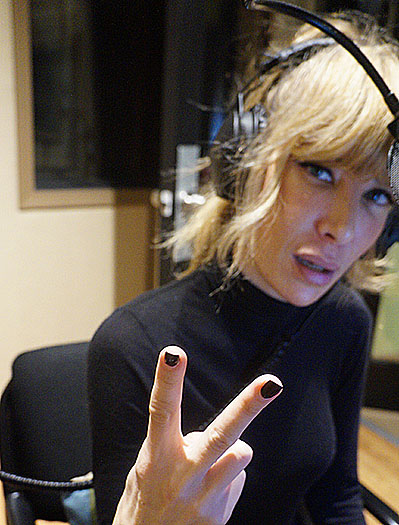
My Fair Junkie – Amy Dresner
The author (My Fair Junkie) details her jaw-dropping and often hilarious descent from a nice (but spoiled) Jewish girl from Beverly Hills to shooting coke into her neck, bottoming out on meth and sex and being assigned to a chain gang after threatening her ex-husband with a knife and ultimately having to rebuild her life. She shares on her struggled with self-harm, BDD, depression, anxiety, sex addiction, suicide attempts, psych ward stays, fear of growing up, the danger of relying on her father’s money, their complicated relationship and the abandonment by her mother.



Frank Sterle Jr.
07/11/2023 at 8:28 pmI once was one of those who, while sympathetic, would look down on those who’d ‘allowed’ themselves to become addicted to alcohol and/or illicit ‘hard’ drugs.
Yet, albeit not in the ‘hard-drug addiction’ category, I have suffered enough unrelenting ACE-related hyper-anxiety to have known, enjoyed and appreciated the great release upon consuming alcohol and/or THC.
Fortunately, the preconceived erroneous notion that drug addicts are simply weak-willed and/or have committed a moral crime is gradually diminishing.
We now know that Western pharmaceutical corporations intentionally pushed their very addictive and profitable opiates — I call it by far the real moral crime — for which they got off relatively lightly, considering the resulting immense suffering and overdose death numbers.
Still, typically societally overlooked is that intense addiction usually doesn’t originate from a bout of boredom, where a person repeatedly consumed recreationally but became heavily hooked on an unregulated often-deadly chemical that eventually destroyed their life and even those of loved-ones.
Ergo, neglecting people dealing with debilitating drug addiction should never have been an acceptable or preferable political option. But the more callous politics that are typically involved with lacking addiction funding/services tend to reflect conservative electorate opposition, however irrational, against making proper treatment available to low- and no-income addicts.
Even to an otherwise relatively civilized nation, their worth is measured basically by their sober ‘productivity’ or lack thereof. Those people may then begin perceiving themselves as worthless and accordingly live their daily lives and consume their substances more haphazardly.
For me, a somewhat similar inhuman(e) devaluation is observable in external attitudes, albeit perhaps on a subconscious level, toward the daily civilian lives lost in protractedly devastating war zones and famine-stricken nations:
The worth of such life will be measured by its overabundance and/or the protracted conditions under which it suffers. Those people can eventually receive meagre column inches on the back page of the First World’s daily news.
Without doubt, some human beings — though their souls are as precious as that of every other human being on Earth — can actually be [consciously or subconsciously] perceived and treated by an otherwise free, democratic and relatively civilized society as though they’re somehow disposable and, by extension, their suffering is in some way less worthy of general societal concern.
Tragically yet understandably, many chronically addicted people won’t at all miss this world if they never wake up. It’s not that they necessarily want to die; it’s that they want their pointless corporeal hell to cease and desist.